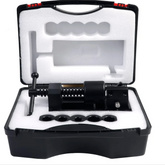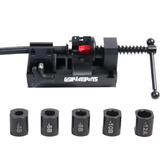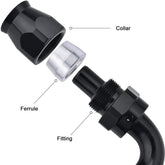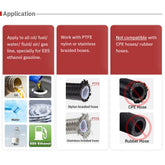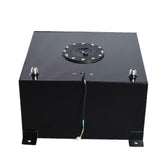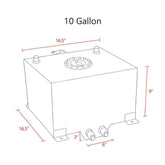When selecting an engine cooling system, we must evaluate the advantages of air cooling compared to liquid cooling. These two basic cooling methods each have their unique benefits and limitations, highlighting the need for a thorough understanding of their operation and applicability to ensure that the engine can operate efficiently for a long time.
Mechanisms of Engine Cooling Systems
Engine cooling systems are engineered to extract surplus heat from the engine, thereby maintaining its operation within a safe thermal threshold. Air cooling and liquid cooling, the predominant cooling systems, accomplish this objective through disparate mechanisms.
Heat Transfer Modalities in Cooling Systems
Heat transfer within an engine is typically facilitated through conduction, convection, and radiation, pivotal for comprehending the operational dynamics of air and liquid cooling systems.
- Conduction: The direct propagation of heat through a material.
- Convection: Heat transfer via fluid movement.
- Radiation: Dissemination of heat energy in electromagnetic wave form.
Air cooling systems leverage airflow to disperse engine heat. Heat sinks are commonly affixed to the engine to amplify the surface area for heat dissipation. As air courses over these fins, it absorbs heat from the engine, effectuating engine cooling.
- Advantages:
Simplicity: Mechanically less intricate than liquid cooling systems, necessitating fewer components.
Weight: Generally lighter owing to the absence of a radiator, coolant, or pump.
Maintenance: Easier and more cost-effective maintenance due to component scarcity.
- Disadvantages:
Efficiency: Inferior to liquid cooling, particularly in high-performance scenarios.
Temperature Regulation: Ensuring consistent engine temperatures can be more arduous, especially amidst fluctuating ambient conditions.
Noise: Air-cooled engines tend to emit more noise due to direct exposure of the cooling mechanism.
Conversely, liquid cooling systems typically employ a coolant (often a water and antifreeze blend) that circulates through the engine, absorbing heat. The heated coolant traverses the radiator, where airflow dissipates the heat before recirculation.
- Advantages:
Efficiency: Enhanced efficiency and superior temperature regulation and cooling performance.
Consistency: Maintains more uniform engine temperatures, pivotal for performance and durability.
Noise Reduction: Quieter operation as the engine is shielded from direct airflow.
- Disadvantages:
Complexity: Greater complexity with additional components like radiators, pumps, and hoses.
Weight: Generally heavier due to supplementary components and the coolant itself.
Maintenance: Increased parts entail heightened potential failure points and maintenance expenses.
A comprehensive juxtaposition of air cooling versus liquid cooling:
- Liquid cooling systems typically outperform air cooling systems in terms of performance, adept at managing elevated heat loads and delivering consistent cooling, crucial for high-performance engines.
- Due to the straightforwardness of air cooling systems, they necessitate less maintenance. Liquid cooling systems, while more effective, mandate regular scrutiny of coolant levels, probable leaks, and the state of hoses and radiators.
- Air cooling systems generally entail lower initial costs and reduced major maintenance expenses. Conversely, liquid cooling systems may incur higher upfront and long-term costs due to their intricacy and augmented part count.
- Liquid cooling systems utilize antifreeze, posing environmental hazards if mishandled. Air cooling systems circumvent this issue, rendering them a more eco-friendly alternative in this aspect.
Selecting the Appropriate Cooling System
Opting for the suitable cooling system hinges on your specific requisites and circumstances. Here are some factors to aid in your decision-making process:
Application: For high-performance or heavy-duty engines, liquid cooling typically proves superior due to its enhanced cooling capabilities.
Environment: In hot climates or under strenuous engine loads, liquid cooling can furnish superior temperature management.
Maintenance: If a simpler, low-maintenance system is preferred, air cooling might be more suitable.
Budget: Air cooling systems generally entail lower costs, both initially and in terms of ongoing maintenance.
FAQs
1. Which cooling method is more effective, air or liquid cooling?
Liquid cooling is generally more effective as it can manage higher heat loads and uphold consistent engine temperatures.
2. Which system is simpler to repair?
Air cooling systems are usually easier and less costly to repair due to their simplicity.
3. How does ambient temperature impact each cooling system?
Air cooling efficiency diminishes with rising ambient temperatures, while liquid cooling systems sustain performance across a broader temperature spectrum.
4. What are the indicators of cooling system malfunction?
Overheating, recurrent coolant leaks, and heightened engine noise can all signify cooling system issues.
5. How frequently should the coolant in a liquid cooling system be replaced?
It is typically advised to replace the coolant every 2 years or 30,000 miles, although consulting your vehicle's owner's manual is recommended.

